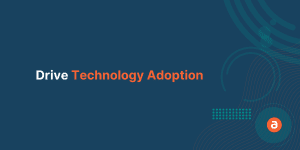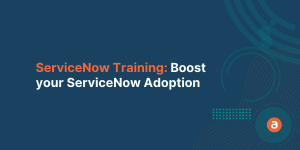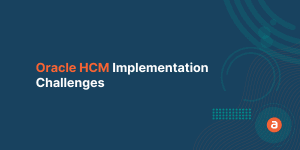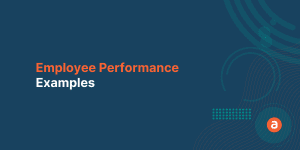Despite the fact that we live in an information era, most businesses are unable to fully utilize the information available to them. Organizations that realize that information is a valuable asset today, have a competitive edge over their competitors and are regarded as industry pioneers or leaders.
Information refers to the data that companies have on hand, which can be tracked and measured. Understanding, aligning, and acting on the available data is how the biggest businesses generate and provide value to their customers.
Data analytics can be defined as a technique of collecting and analyzing data for a particular purpose. It’s a very important part of a company’s digital strategy to help understand the behavior of the customers and then based on the insight, make the right decisions that impact the overall business bottom-line.
Having such a comprehensive view and knowledge of data points helps business leaders and managers recognize more value and, as a result, extend and improve their customers’ experience with them.
Data Analytics and Digital Transformation
Data analytics is at the forefront of Digital transformation (DX). 39% of CEOs have placed DX as the top priority for their CIOs.

Digital transformation is the transformation of business goals by eliminating traditional legacy methods and business models and employing sophisticated digital methods. For example, by moving processes to the cloud.
By implementing this change, the organization makes sure that the data is accessible to the people, ultimately resulting in data-driven decision-making. Through this simple strategy, organizations can measure the effect of digital adoption by using analytical methods.
Digital transformation isn’t just for brick-and-mortar shops. The goal of DX is to bring all of the data points together in one place for a more comprehensive and holistic picture of the company’s environment.
Data Analytics reports
Data analytics helps businesses optimize overall performance and it also measures the success of the digital adoption made by the business. Thus, companies that implement data analytics into their business model get extensive benefits.
Data analytics helps strengthen business operations and encourage disciplined thinking. It also keeps the key decision-makers focused on the goals and objectives of the business, improves the processes, and optimizes communication between business leaders and data experts so that the right conversations for business success can be driven.

Data analytics can help you identify where improvements are needed and ensure that all employees have access to helpful content, tools, or information they need when using our products for maximum benefit.
Data Analytics reports can be used to:
- Inform an outreach plan that you can use to drive communications to identify any barriers to adoption and provide mitigating measures.
- Identify the “power users” (or early adopters) inside an organization who demonstrate high consumption levels, providing the business with a chance to hire them as change advocates or technology evangelists for the organization.
- Track the success rates, identify roadblocks that may be hindering digital adoption, and make adjustments to your efforts to maximize success.
Measuring the success of Digital Adoption
Data analytics provides critical insights into how the new technology is being used by the end-users across the organization. Management can then use this information to identify any challenges that can hinder the proper use and adoption of new technology.

These insights will also allow management to identify the early adopters of the tech, i.e., employees whose usage/adoption is higher than average. These employees can then be assigned the role of guiding their co-workers on how to use the technology, which will encourage product adoption across the organization.
For the sake of successful digital adoption in the workplace, businesses must analyze the available data and reports, as it will help them identify who is falling behind in the process, the reason why that’s happening, and figure out what they can do to ensure that nobody is left behind.
These data insights can help businesses save time, money, and additional resources when optimizing future digital adoption initiatives. In short, the key to an effective digital adoption strategy is the ability to analyze the data, which is what facilitates sharper business decisions and effectively helps you customize the rollout for more effective results.
Role of a Digital Adoption Platform
Having heard about the importance and benefits of data analytics, companies must have a proper tool to track and store data. This is one of the main reasons why companies must leverage a Digital Adoption Platform like Apty to track data and ensure successful digital adoption.

For example, if you are simply measuring how often people use a given application, you are probably missing key data about what features they’re making use of or for which tasks they’re lagging, etc. With Apty DAP, you can overcome these challenges and attain successful digital adoption.
Apty’s advanced analytics can help you formulate the digital adoption strategy for your organization. For instance, if you notice that the employees spend more time on a particular task, you can create customized in-app walkthroughs to help employees complete the task efficiently and accurately. With such a strategy, employees can be more productive and you can also measure their capability.
Insights are an integral part of Apty, where you can get quick access to the number of used workflows, data validations, tooltips, announcements, launchers, and knowledge center content. With a DAP like Apty in place, you can allow employees to test their competency and learn how to use your tech stack as they go on with their daily work.
Conclusion
Apty’s analytics helps organizations use data to discover new opportunities. It empowers businesses to measure employee needs and satisfaction so they can give them what they want. Apty analytics can help companies reduce training costs and point to more efficient ways of doing business.
Apty provides foresight to create a better business plan and provides an opportunity to change company values, vision, and mission to meet current and growing customer needs.
Apty DAP can give you the visibility you need to understand how your enterprise software stack is being used, to increase employee productivity, and also to gain actionable insights that can improve your organization’s digital adoption rate.













